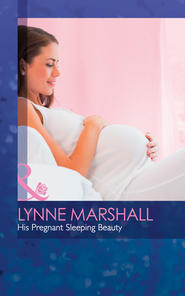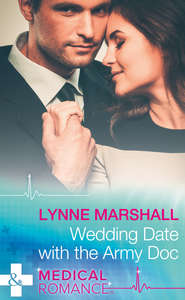По всем вопросам обращайтесь на: info@litportal.ru
(©) 2003-2025.
✖
Hot Single Docs: London's Calling: 200 Harley Street: The Proud Italian / 200 Harley Street: American Surgeon in London / 200 Harley Street: The Soldier Prince
Автор
Год написания книги
2019
Настройки чтения
Размер шрифта
Высота строк
Поля
‘It will get a little better each day. But only if you keep trying.’ Rafael covered her right eye with one hand and then held up his other hand. ‘How many fingers can you see?’
‘Free.’ The word had to come out without her mouth moving.
‘Good girl.’ Rafael smiled at the grandmother. ‘The vision’s improving.’
She nodded. ‘Mrs de Luca had a specialist from the eye department come in this morning. They think it’s going to be fine. And the orthopaedic surgeon is happy with her arms and the movement she’s got in her fingers. Mrs de Luca took some of the stitches out of her face this morning, too. It’s looking a bit better, isn’t it?’
Rafael could hear the doubt in the woman’s voice. ‘If you’d seen Lucy when she came into Theatre, you would know that what Mrs de Luca did is just amazing. Lucy will need more surgery later but, eventually, I suspect you’re going to have to look carefully to see any lasting damage.’ His reassurance was sincere. The pride he felt in Abbie’s work even more heartfelt.
‘She’s your wife, isn’t she? Mrs de Luca?’
‘She is.’
In name only, however. The taunting whisper stayed with Rafael as he finished his round of the surgical ward.
The wheels of his life might be turning perfectly well but the cogs weren’t fitting together properly so the wheels weren’t turning together. Was it only coincidence that working together to operate on Lucy had been the only time they’d been that close professionally since she’d returned?
She should be here now, sharing this ward round. Sharing the pleasure in the little girl’s excellent progress. But she’d been here before him today and she was in Theatre this afternoon. Creating a new ear for the patient she’d seen on the morning of that first outpatient clinic together. The one that had led to Leo and Ethan ordering them to put their personal issues aside and work together properly again. But they weren’t, were they? Even this patient they’d worked so hard on together was now being followed up on at different times.
His time with Ella was wonderful but she would only allow him to do things for her when Abbie wasn’t there.
There was nothing wrong with his home either, except that the only time Abbie had gone there had been when he had been here, looking after Ella.
How could they possibly put things right when they were beginning to shape their lives into completely separate wheels? It wouldn’t matter how smoothly they turned, it wouldn’t be any kind of a marriage and he wouldn’t blame Abbie for deciding it wasn’t good enough.
Somehow he had to get the cogs to fit inside each other. To show Abbie that, by doing so, the ‘machine’ of them being together would be stronger. Able to do so much more. Could last for ever, like a beautifully crafted clock.
But marriage wasn’t a machine, was it? He was thinking about this all the wrong way. And maybe it was that kind of thinking that had caused their problems right from the start.
Waiting by the lift when he’d left his junior staff to follow up on any new orders for his patients, Rafael couldn’t shake off the disturbing undercurrent his analogy of timepieces had left him with.
You couldn’t divorce emotion from things that happened to people. He was too good at standing back and seeing the big picture without the emotional layers. The way he had when it had come to making that decision about Ella’s experimental treatment. Perhaps the way he had when he’d voiced that ‘all or nothing’ ultimatum about their marriage? When he looked at the big picture, he saw it in terms of benefit versus suffering for the individual involved from a clinical perspective.
Abbie was the opposite. She saw the same big picture, but her scales weighed the emotions of everybody involved and not just the patient at the centre of the decision to be made. And the results she came up with were very different sometimes.
But not wrong.
Rafael knew that. He also knew that he’d made things much worse while Abbie and Ella had been away in New York. He’d buried himself in his work and when he had thought about his family, the fear that he would never see his daughter again had been easily shrouded in anger and then resentment towards Abbie. He’d been cool and clipped in any communication. No wonder it had trailed away into impersonal emails and text messages.
But how did you go about changing something that was a part of your personality? How could you learn to feel the things that someone like Abbie could feel?
By finding someone to teach you?
The lift doors slid open in front of him but, instead of stepping in, Rafael turned swiftly and headed for the stairs.
* * *
Abbie knew it was Rafael coming into the theatre without even having to turn her head.
What she didn’t know was why he had come in. The surgery for the grade-three microtia on seven-year-old Annabelle was well under way. Rib cartilage had been harvested and Abbie was sculpting the new ear. She had to look up for a second as Rafael stepped closer, however. Had something happened to Ella?
The eye contact was reassuring. ‘Don’t let me interrupt,’ Rafael said. ‘I just had the urge to come and watch an artist at work.’
Abbie blinked. ‘Really? What brought this on?’
‘I was checking Lucy. Admiring your needlework. And then I remembered you were doing this today and it’s been a long time since I’ve watched the procedure. Do you mind?’
‘No, of course not.’ Hardly. He had been admiring her work? Wanted to watch ‘an artist’? How could anyone object to such a professional accolade?
It put the pressure on a little more, though. Not that Abbie hadn’t been doing her best before but now she was determined to make this perfect.
‘This is Annabelle,’ she told Rafael. ‘She’s been waiting a long time for this surgery but I needed her to be old enough to have sufficient rib cartilage to harvest.’
‘She could have had the surgery much younger with a Medpor reconstruction, couldn’t she?’
Was Rafael criticising her choice? Abbie couldn’t help sounding a little defensive.
‘Using an artificial framework means that the ear can’t match the other one perfectly. It also doesn’t grow with the child. This creates an ear that’s alive. One that’s going to last a lifetime.’
‘But not many surgeons are gifted enough to do it well. Annabelle is lucky to have found you.’
There was a murmur of agreement from the rest of the team. Abbie shook off the praise. ‘I think she chose me because I said I’d put an earring in to match her other ear so it’ll be there when the bandage comes off for the first time next week.’
Happy with the shape of the outer ear she had carved from the cartilage, Abbie turned her attention to the peanut-shaped deformity that had been Annabelle’s right ear until now. She could use the lower part for the ear lobe. The tiny gold stud earring was bathed in disinfectant and waiting in a kidney dish nearby.
Rafael was watching her examination of the deformed ear tissue.
‘She must have been teased a lot at school.’
‘Yes. She’s kept it covered pretty well with her hair but she was very self-conscious about it. Her mother said they had all sorts of problems when she was expected to do swimming at school.’
‘Has it affected her badly, do you think?’
‘Well, she’s very shy. Hard to say whether she would have been more outgoing without the deformity but I’m sure it’s contributed. It would have become progressively more of an issue as she got older, of course.’
‘Si... It would be torture for a teenage girl to look so different.’
‘Mmm. That’s why I favour the rib graft method. She’ll need a bit more surgery to refine things down the track but by the time Annabelle’s interested in boys, her ear will look and feel as if it’s always been there.’
This was weird. She might have expected a keen interest from Rafael but Abbie would never have picked that it would focus on the emotional side of the surgery and its aftermath. Why wasn’t he asking about the dimensions of the suture material she was using? Or the technique for elevating a skin flap to preserve all the hair follicles so that Annabelle wouldn’t be left with a bald patch?
‘She has conduction deafness, I assume?’
‘Yes. There’s no ear canal or eardrum on this side.’ That was more like it. A clinical query.
‘Is that causing problems for her? Or her family?’
‘Doesn’t seem to be.’ He was doing it again. Looking past the clinical picture and considering the bigger, emotional picture. Something was going on in his head, Abbie realised. He was making a deliberate effort. To connect with her way of thinking about patients, perhaps?











